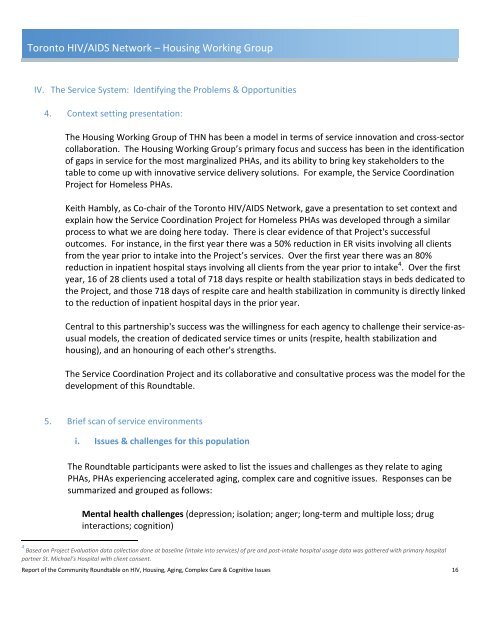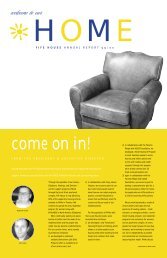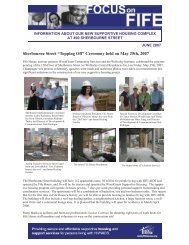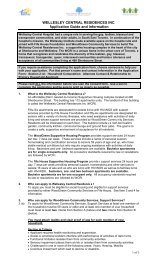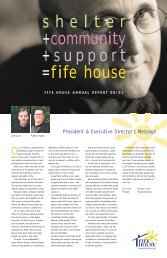Toronto HIV/AIDS Network â Housing Working Group - Fife House
Toronto HIV/AIDS Network â Housing Working Group - Fife House
Toronto HIV/AIDS Network â Housing Working Group - Fife House
- No tags were found...
You also want an ePaper? Increase the reach of your titles
YUMPU automatically turns print PDFs into web optimized ePapers that Google loves.
<strong>Toronto</strong> <strong>HIV</strong>/<strong>AIDS</strong> <strong>Network</strong> – <strong>Housing</strong> <strong>Working</strong> <strong>Group</strong>IV. The Service System: Identifying the Problems & Opportunities4. Context setting presentation:The <strong>Housing</strong> <strong>Working</strong> <strong>Group</strong> of THN has been a model in terms of service innovation and cross-sectorcollaboration. The <strong>Housing</strong> <strong>Working</strong> <strong>Group</strong>’s primary focus and success has been in the identificationof gaps in service for the most marginalized PHAs, and its ability to bring key stakeholders to thetable to come up with innovative service delivery solutions. For example, the Service CoordinationProject for Homeless PHAs.Keith Hambly, as Co-chair of the <strong>Toronto</strong> <strong>HIV</strong>/<strong>AIDS</strong> <strong>Network</strong>, gave a presentation to set context andexplain how the Service Coordination Project for Homeless PHAs was developed through a similarprocess to what we are doing here today. There is clear evidence of that Project's successfuloutcomes. For instance, in the first year there was a 50% reduction in ER visits involving all clientsfrom the year prior to intake into the Project’s services. Over the first year there was an 80%reduction in inpatient hospital stays involving all clients from the year prior to intake 4 . Over the firstyear, 16 of 28 clients used a total of 718 days respite or health stabilization stays in beds dedicated tothe Project, and those 718 days of respite care and health stabilization in community is directly linkedto the reduction of inpatient hospital days in the prior year.Central to this partnership's success was the willingness for each agency to challenge their service-asusualmodels, the creation of dedicated service times or units (respite, health stabilization andhousing), and an honouring of each other's strengths.The Service Coordination Project and its collaborative and consultative process was the model for thedevelopment of this Roundtable.5. Brief scan of service environmentsi. Issues & challenges for this populationThe Roundtable participants were asked to list the issues and challenges as they relate to agingPHAs, PHAs experiencing accelerated aging, complex care and cognitive issues. Responses can besummarized and grouped as follows:Mental health challenges (depression; isolation; anger; long-term and multiple loss; druginteractions; cognition)4 Based on Project Evaluation data collection done at baseline (intake into services) of pre and post-intake hospital usage data was gathered with primary hospitalpartner St. Michael’s Hospital with client consent.Report of the Community Roundtable on <strong>HIV</strong>, <strong>Housing</strong>, Aging, Complex Care & Cognitive Issues 16


